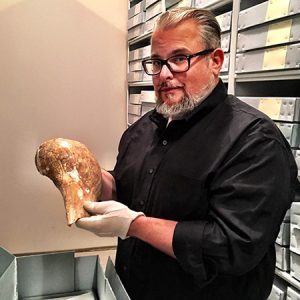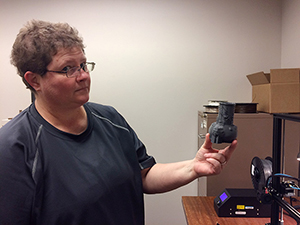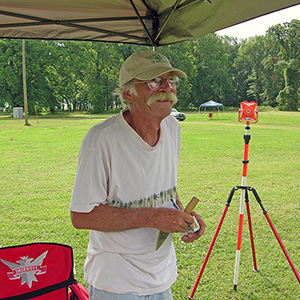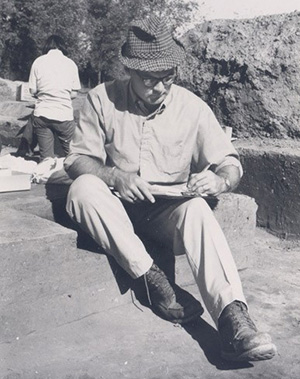Assistant Registrar Madelyn Rose has just completed her Master's in Library and Information Science with a focus in Archives through the University of Oklahoma! Madelyn has been with the Survey since 2015 when she started as a work-study student. Along with her duties as Assistant Registrar she runs our 3D technology lab.

Dr. Michelle Rathgaber was recently promoted to Research Associate by the Arkansas Archeological Survey’s Personnel Committee. This promotion is based on her work as the Educational Outreach Coordinator of the ARAS since 2021. In this position Rathgaber has created video content for the ARAS YouTube channel, presented in person and virtual programs to students and adults throughout Arkansas and the US, coordinated the ArcheoOlympics and Archeology Month event planning, and been elected as the webmaster for the Southeastern Archaeological Conference. If you are interested in scheduling an archeology program, contact Michelle at mmrathga@uark.edu.
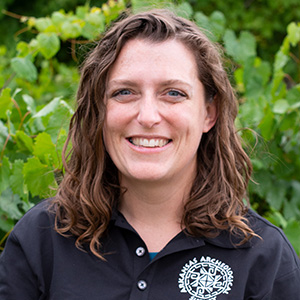
Anthony Clay Newton (B.A., Southern Arkansas University, 2004) is the Archeological Assistant at the Arkansas Archeological Survey’s research station at Henderson State University in Arkadelphia. He has worked as a professional archeological technician for various cultural resource management companies, the USDA Forest Service, and the Survey. He has worked in nine states and on numerous projects on private, state, federal, and municipal property. Newton is interested in the archeology and history of southwestern Arkansas and the Ark-La-Tex region, photography, and historical archeology. He is from Magnolia and an active Life member of the Arkansas Archeological Society.
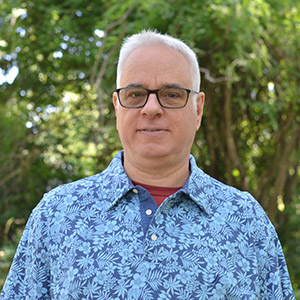
Brittney Bostian (B.A., University of Arkansas at Monticello, 2023) will be joining the Survey in April as the Station Assistant at our University of Arkansas at Pine Bluff station. Brittney’s passion for the past began with her undergraduate research, which focused on changing patterns of land use among Arkansas’s early settlers. After earning her B.A., she worked as a project assistant with Dr. Matthew Rooney at UAM where she restored collections, archived and digitized data, and transcribed census records detailing the lives of descendants of enslaved African Americans who migrated to southeast Arkansas. Brittney is now pursuing her Master’s in Library and Information Science with an Archival emphasis. She believes that preserving historic records and ensuring public access to them is essential for understanding our past and building a better future.
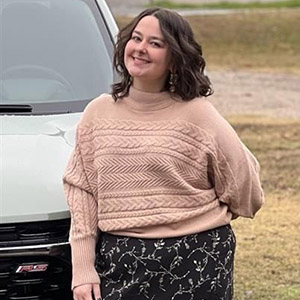
Congratulations to Kathy Cande on her retirement from the Arkansas Archeological Survey after 37 years of service! Kathy started with the Survey in 1987 as a Project Archeologist for the Sponsored Research Program (SRP) which dealt with archeological contract projects usually associated with Section 106 of the National Historic Preservation Act of 1966. Throughout her career, she consulted and worked with multiple outside agencies on research and historic preservation, including Arkansas State Parks. She authored educational flyers for the Survey and authored or co-authored web articles for the Survey’s 50 Moments series and the Encyclopedia of Arkansas. She has given many public presentations on Arkansas archeology/history and provided tours of the archeological lab to visiting scholars, schoolchildren, and other groups.
Kathy Cande Retirement
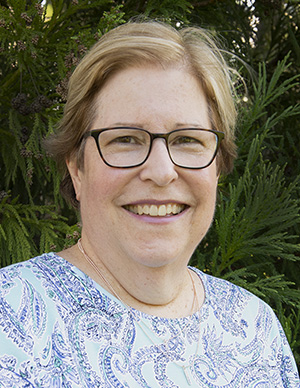
Halee Mills was recently hired as the new Archeological Assistant at the Parkin Archeological State Park Research Station. She will be starting on March 1, 2025. Halee is currently pursuing a master’s degree in public history at Arkansas State University. She received a bachelor’s degree in history from Williams Baptist University in May 2023. Her primary interest is Native American history, with her capstone project focusing on the memorialization of the Tongva (Gabrielino) in California. She enjoys the outdoors, thrifting and hanging out with her black lab, Bear, in her free time. She lives by a simple motto in her academic pursuits, "Educate, advocate and preserve."
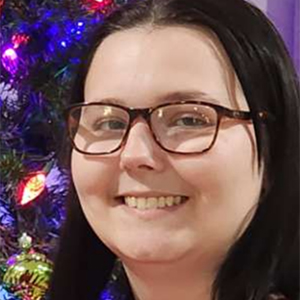
Ashley Hansen (BA, University of Central Arkansas, 2023) will be joining the Survey in June as Research Assistant at our Winthrop Rockefeller Institute station on Petit Jean Mountain. Her undergraduate research focused on the archeological landscapes of the Civilian Conservation Corps in Arkansas and how these landscapes are remembered and interacted with today. After earning her BA, she worked as a seasonal interpreter for Arkansas State Parks, where she further developed her passions for public outreach and the pre-colonial history of Arkansas. She believes that if Arkansans understand their state's past, they can be more empowered to love and care for the land on which they live.
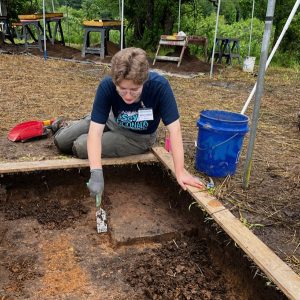
Tim Mulvihill, (ARAS-UAFS) has recently agreed to take over the ARAS Geophysical Prospection position previously held by Dr. Jami Lockhart (ARAS-Emeritus)! In this position, Tim will work with all of the ARAS Research Stations, as well as community and research partners, to conduct remote sensing research at archeological sites across Arkansas. This is important work as it narrows down the boundaries of archeological sites and allows researchers to get an idea of what might be under the surface in different areas of a site before any excavation commences. This allows archeologists to target areas of sites most likely to result in excellent research and analysis potential. Tim has worked for the ARAS in various capacities and at different locations across the state for 36 years and will bring his vast knowledge of the archeology of Arkansas to this new position. Congratulations, Tim!
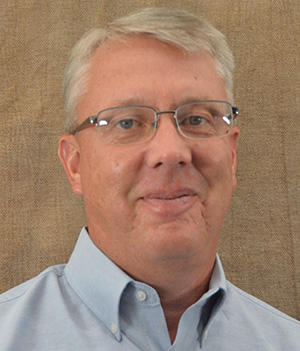
Dr. Jami Lockhart retired on December 31, 2024 after 39 years of service. Jami was our Computer Services Program Coordinator as well our Director of Archaeogeophysical Research. He has conducted research in all parts of Arkansas in collaboration with our Research Station Archeologists as well as Arkansas State Parks, the National Park Service, cemetery researchers, historical associations, and the Archeological Conservancy. He also conducted research at major archeological sites in Arkansas such as Parkin, Plum Bayou Mounds, Carden Bottoms, and Menard-Hodges among many others as well as at sites in surrounding states, such as Spiro Mounds in eastern Oklahoma. He was instrumental in the growth of the Automated Management of Archeological Site Data in Arkansas (AMASDA) database, and built an advanced archaeogeophysical program at the Arkansas Archeological Survey.
Dr. Jami Lockhart Retires
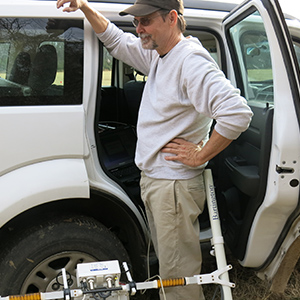
On September 26, 2024, Arkansas archeology, and indeed Central Mississippi Valley, southeastern and midwestern, and all of American archeology, lost a great colleague and scholar earlier this week, Dan F. Morse. Dan had conducted archeology in many states, and made important discoveries at a lot of well-known sites, some made more so because of his work and prolific writings on those sites, including Etowah, Cahokia, Steuben, Pinson, Nodena, Parkin, Brand, Sloan, Zebree, and many, many more.
Dan F. Morse
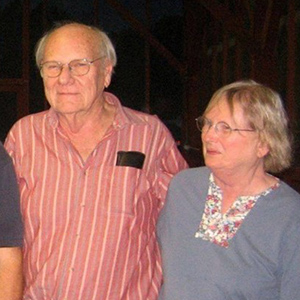
The passing of Mary Lynn Kennedy on August 19, 2023, touched many of us who were her colleagues here at the Arkansas Archeological Survey with sadness but also fond memories. Mary Lynn retired from the Survey back in 2006, after 31 years as editor for the publications program. During those 31 years she brought to print 52 volumes of the ARAS Research Series, two Popular Series books, 11 Technical Papers, and 32 Research Reports. Learn more about Mary Lynn's life and contributions to the Survey.
Honoring Mary Lynn Kennedy
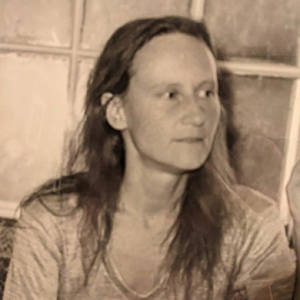
The Survey lost friend and colleague Teka McGlothlin on February 7, 2023. Teka was the Survey’s Registrar, and a Historical Archeologist by training. She was instrumental in creating the Arkansas Archeological Collections Initiative (a digital collections documentation interface), and her technical skills were critical to establishing the Survey’s 3D scanning and printing program.
Remembering Teka McGlothlin
The Arkansas archeological community lost a treasured member on October 12th, 2021 when Larry Porter passed away peacefully at home after a brief illness. Larry had just retired as station assistant at the WRI Research Station and was a long-time member of the Arkansas Archeological Society.
Remembering Larry Porter
We were deeply saddened in April, 2021 to learn of the passing of our friend and colleague Frank F. Schambach, who since his 2006 retirement from the Arkansas Archeological Survey has resided with his wife Marilyn in Afton, New York.
Frank F. Schambach Passing
